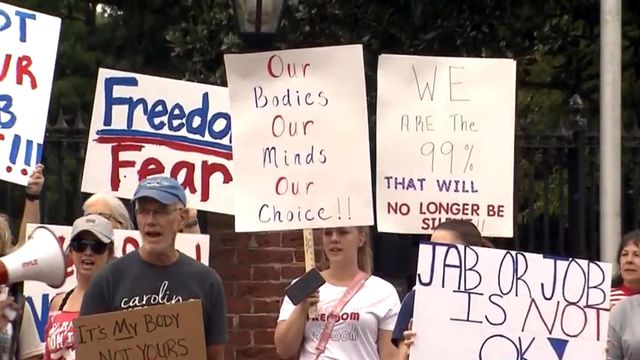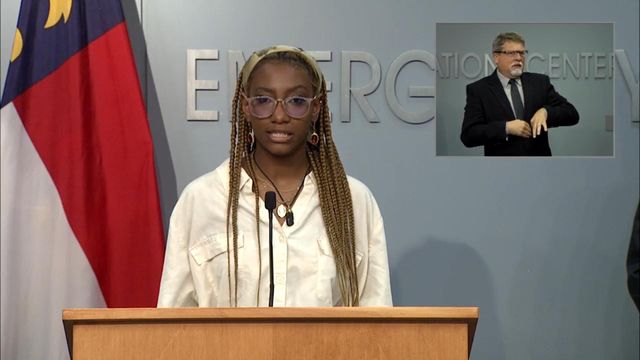Cooper: NC focused on vaccinations, not new pandemic-related mandates
Gov. Roy Cooper dismissed questions Wednesday about the possibility of a new state mask mandate or business shutdowns amid a surge in coronavirus cases statewide.
Another 3,413 infections were reported in North Carolina on Wednesday, which is the highest one-day total since Feb. 20 and a 30 percent increase from a week ago and an eight-fold increase from a month ago. The state is now adding nearly 3,000 cases a day, and virus tests are coming back positive at a 12.2 percent clip, more than double the state's 5 percent target.
Also, 1,580 people are hospitalized statewide with COVID-19, an increase of 115 patients since Tuesday and the most since Feb. 21. More than a quarter of those patients are in intensive care.
"The sharp rise in our numbers is driven by the unvaccinated," Cooper said at a news conference.
During the briefing, he announced Audrey Chavis, an 18-year-old from Winston-Salem and an incoming freshman at Fayetteville State University, as the third $1 million winner in the state's vaccination lottery.
After the pandemic disrupted her senior year of high school, Chavis said, she decided to get her shot so she could return to some sort of normal life and protect herself and others from the virus.
"There are way more pluses than minuses to getting vaccinated," she said.
Fifty-eight percent of North Carolinians age 18 or older are fully vaccinated, while another 3 percent have received at least one vaccine dose. More than 108,000 vaccinations were administered last week, which was the most since mid-June.
"We can't rest until this pandemic is behind us, and the only way that happens is that we get enough people vaccinated that we push this virus off the cliff," Cooper said. "We need to continue to do the things to try to get more people vaccinated."
A week ago, the governor signed an executive order requiring some 50,000 workers in state agencies under his administration to show proof by Sept. 1 that they have been vaccinated or face routine virus testing and a mask mandate at the office. He called on private businesses to follow suit, and he said Wednesday that some are doing so.
But about 100 people protested in downtown Raleigh on Wednesday against vaccination requirements at area hospitals.
Major hospital systems across North Carolina, including Durham-based Duke University Health System and Chapel Hill-based UNC Health, announced last month that all staff and physicians must be vaccinated to continue working there. Cooper's executive order also extends to workers at state-run health facilities.
"If you chose to get it, that is great. That is fine. It is your choice. I should deserve a choice,” said Caryn Helms, a nurse for 30 years who now works for Charlotte-based Atrium Health. "This is my life. This is my career. Now, I am stuck between a rock and a hard place, but I am choosing my body."
Helms said not enough is known about the vaccine for her to feel safe getting it. She said she's confident society could live through the pandemic while waiting to see if there are any long-term effects from the vaccine.
"It is not that we are all anti-vaccine,” she said. "[We'll get by] if we boost our immunity and if we practiced hand hygiene and social distancing and masking when appropriate."
Cooper called the protest "disappointing," saying he backs the vaccination requirement at hospitals.
"Yeah, you made the decision not to be vaccinated, but what you are doing is you are putting everybody else at risk,” he said.
During the news conference, the governor was asked repeatedly about reinstating the state's mask mandate, which was mostly lifted in May and completely expired last week. He also was asked about the potential for orders to shut down businesses if the state's virus numbers continue to increase.
"We really believe that people now know what to do to protect themselves and other people. Our primary focus is on vaccinations. That's what's going to get us to the end of the day," he said. "We don't want to do those other things if we don't have to."











